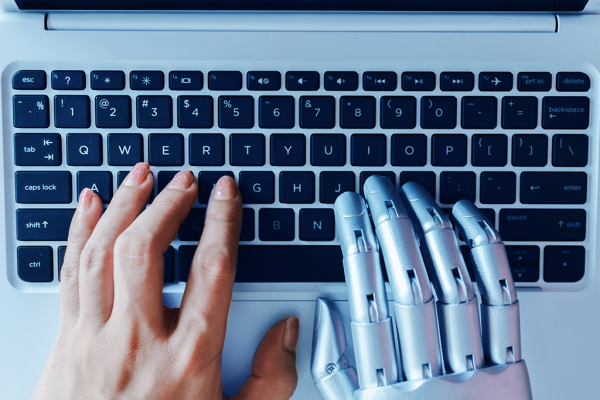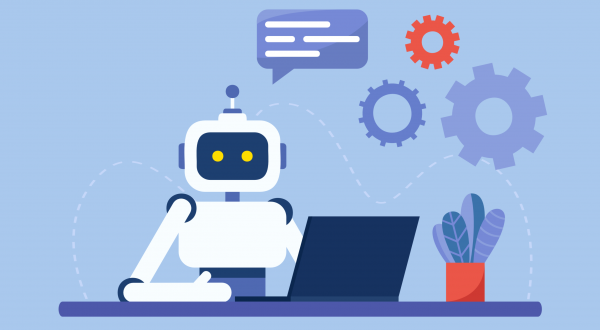How to Save Time with AI? Don't Miss These Five Essential Skills
![]() 10/12 2024
10/12 2024
![]() 596
596
Since the launch of ChatGPT by OpenAI in 2022, artificial intelligence (AI) has entered a period of rapid development, with AI applications experiencing explosive growth. Currently, AI can already assist in completing many basic tasks.
However, many people worry that AI will eventually dominate the world. In many cases, though, AI's capabilities may simply be overhyped.
Most people fear an uncertain future, as the automation of certain skills is bound to lead to job losses, instability, and a decline in social value for some individuals. Nevertheless, AI consistently requires human collaboration, and sometimes even intervention, to function properly.

Bernard Marr, an internationally best-selling author, states, "We don't want to become overly reliant on AI in the future. If the next virus is not COVID-19 but a massive computer virus, it could essentially paralyze, destroy, or even lock down all computers. The consequences would be unimaginable."
However, AI currently cannot fully imitate human capabilities, performing well only in repetitive, foundational, or mechanical tasks.
Therefore, it undoubtedly saves people time and provides room for creativity and imagination.
Marr adds, "People often feel frightened when they think about all the capabilities AI now possesses. For instance, as a writer, am I at risk of tools like ChatGPT writing all my articles for me?"
"Certainly not. On the contrary, AI enhances our work capabilities."
Below are five skills that anyone can learn with less effort, based on the latest advancements in AI.
Skill 1: Writing
AI's natural language generation technology can be used to produce simple reports, news articles, and other content. As AI's language capabilities advance, it will assist human writers by summarizing information, making suggestions, and brainstorming ideas.
Currently, many employees are already using chatbots like ChatGPT to write work-related content, with HR teams leveraging it to generate job descriptions, for example.
According to Reuters, some individuals have even used AI to write various books and content, selling them on Amazon for additional income.
Skill 2: Art Design
AI-powered tools can assist in generating images, designing layouts, and optimizing color schemes, thereby reducing manual design work.

While some argue that AI-generated art lacks artistic merit, pioneering artists have embraced AI to develop their styles and techniques.
For instance, an Instagram photographer has gained thousands of followers with stunning portrait works, acknowledging that these pieces were actually created using AI software like Midjourney and retouched in Photoshop.
Skill 3: Data Entry
Imane Adel, the Strategic Executive Vice President at Paymob, notes, "Data entry and processing are likely to be automated within the next five to ten years. Machine learning algorithms can input data faster and more accurately than humans."
Thanks to machine learning algorithms like Optical Character Recognition (OCR) technology, AI can now recognize printed or handwritten text and convert it into digital data, reducing human errors and saving valuable time.
Skill 4: Data Analysis
AI can quickly analyze vast amounts of data, identifying patterns and insights that humans might misinterpret or miss altogether, leading to better decision-making.
AI can simply look at data, analyze it, detect patterns, and perform basic financial accounting tasks with ease.
Skill 5: Video Editing
AI-driven editing tools can help individuals without editing experience quickly get started, automatically selecting and combining the best shots, adding transitions, and adjusting audio.
AI can also assist with tasks like image retouching, video stabilization, and color correction. Many AI tools generate previews, making it easier for users to visualize the final product.
Future of Work in the AI Era
As AI can easily automate repetitive tasks, it may alleviate the burden of executing mundane, creativity-stifling duties that people have endured for years.
Marr says, "In the long run, AI is a positive force. Many jobs consume vast amounts of energy without producing genuine value."
"If we can delegate energy-consuming, low-output tasks to AI and focus our time on activities that enhance human creativity, critical thinking, and other valuable skills, the world will only become better," he adds.

According to Marr, the relationship between AI and humans should be collaborative, akin to that between pilots and autopilots.
While aircraft can fly autonomously, a pilot is always present for emergencies, offering innovative and creative solutions that many robots cannot yet match, applicable across all aspects of life susceptible to automation.
Therefore, in the AI era, what truly matters are the human qualities that set us apart.
From creativity to critical thinking, soft skills are poised to become the most valuable and sought-after skills in the market.





